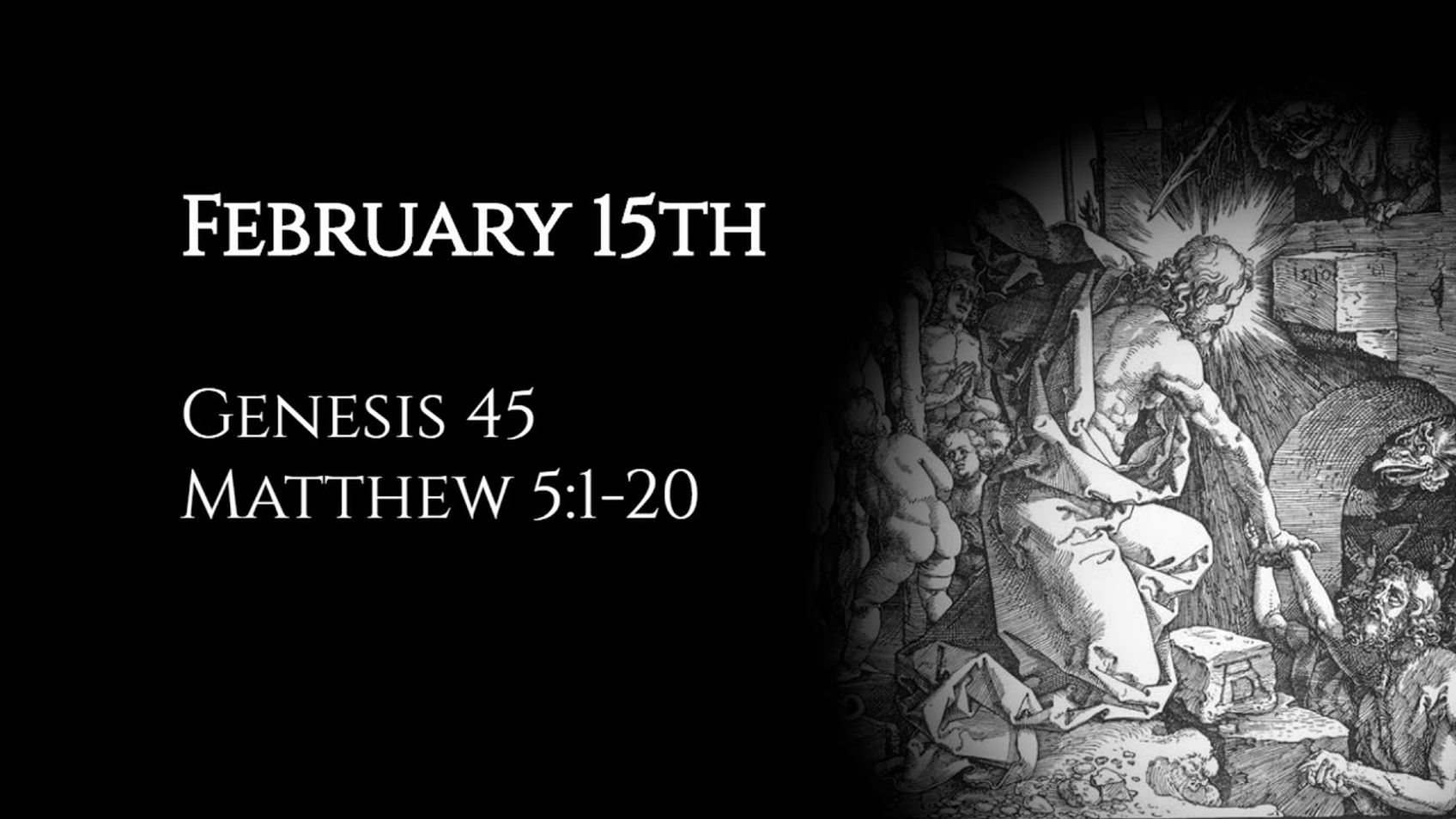February 15th: Genesis 45 & Matthew 5:1-20

Joseph reveals himself to his brothers. The Beatitudes; Jesus fulfilling the Law.
Some passages referenced:
Matthew 23 (woes corresponding with the Beatitudes); Isaiah 61:1-4 (Isaiah's prophecy of the kingdom); Isaiah 66:2 (God dealing with the contrite in spirit); Psalm 37:11 (the meek inheriting the earth); Psalm 24:3-6 (the pure in heart seeing God); Deuteronomy 29:22-23 (salt as a means of destroying land); Leviticus 2:13, Mark 9 (salt associated with fire and sacrifice); Colossians 4:5 (speech seasoned with salt); Isaiah 42:6, 49:6 (the light of the nations); Psalm 19 (Law and heaven and earth related).
Reflections upon the readings from the ACNA Book of Common Prayer (http://bcp2019.anglicanchurch.net/).
If you have enjoyed my output, please tell your friends. If you are interested in supporting my videos and podcasts and my research more generally, please consider supporting my work on Patreon (https://www.patreon.com/zugzwanged), using my PayPal account (https://bit.ly/2RLaUcB), or by buying books for my research on Amazon (https://www.amazon.co.uk/hz/wishlist/ls/36WVSWCK4X33O?ref_=wl_share).
The audio of all of my videos is available on my Soundcloud account: https://soundcloud.com/alastairadversaria. You can also listen to the audio of these episodes on iTunes: https://itunes.apple.com/gb/podcast/alastairs-adversaria/id1416351035?mt=2.
More From Alastair Roberts
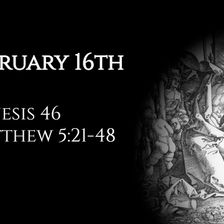
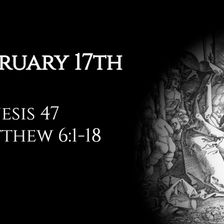
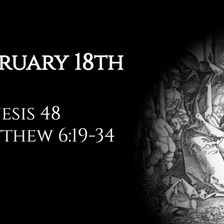
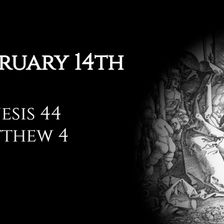
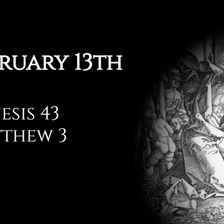
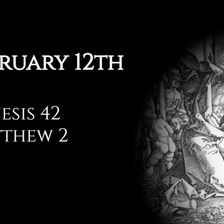
More on OpenTheo















